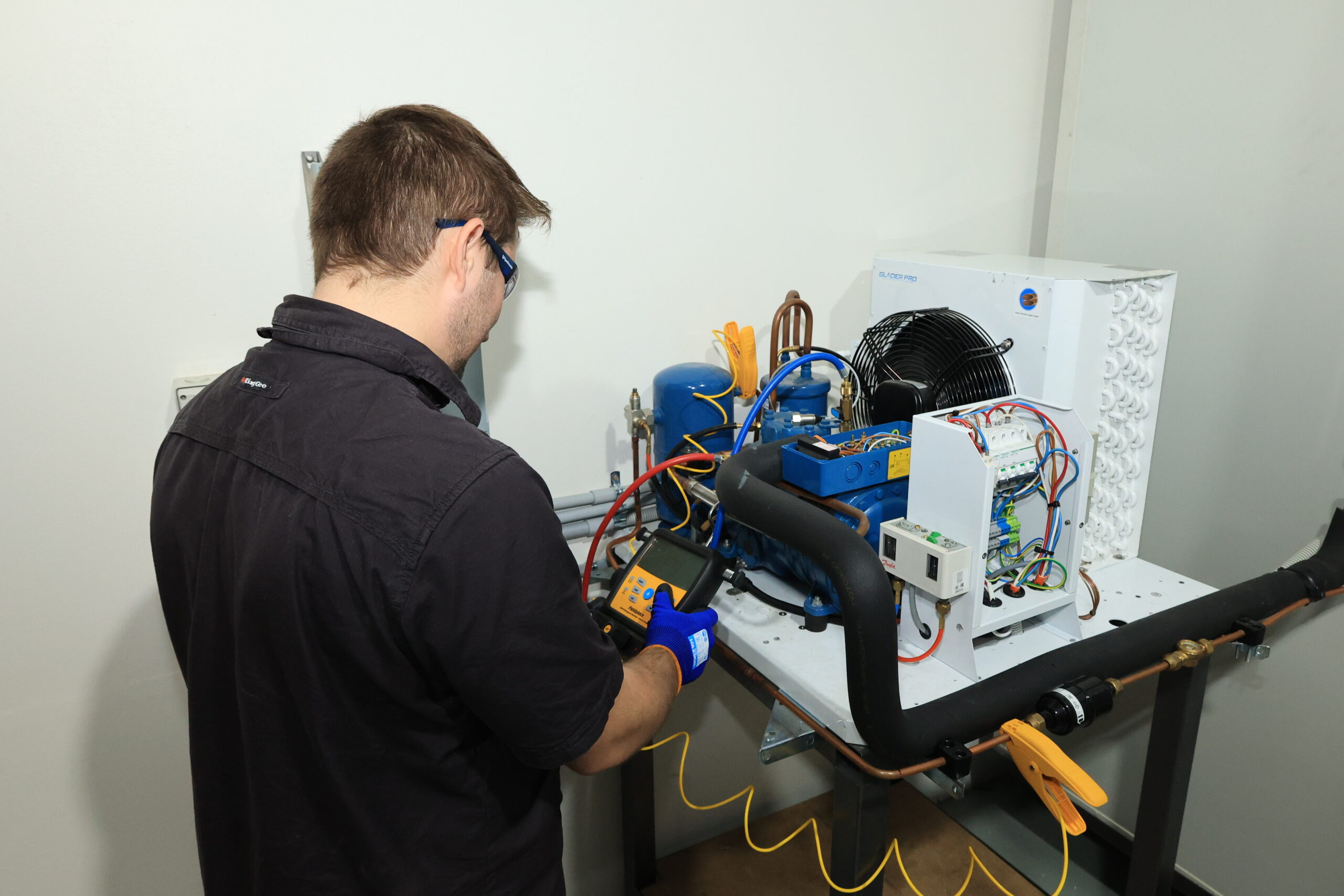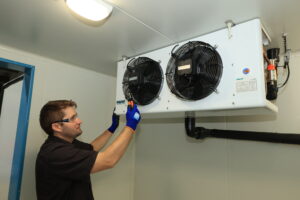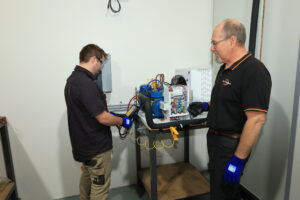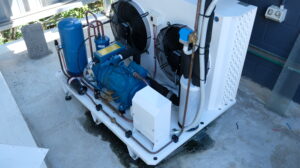A career in air conditioning can help you earn $90000 to $110,000 annually. The air conditioning industry provides excellent job security, with employment growing 5% faster than average in other occupations.
The electrical and electronic industry employs 600,000 professionals who work in residential and commercial sectors. This piece will show you how to build a rewarding career in this growing field, whether you want to take air conditioning and refrigeration courses or start your own business.
The guide details the Australian market’s required qualifications and career progression paths. It will help you position yourself successfully in an industry constantly expanding as more people need energy-efficient solutions.
Getting Started in Air Conditioning
You need specific qualifications and licenses to start a career in air conditioning. The first step is completing a Certificate III in Air Conditioning and Refrigeration from a registered training organisation.
Essential qualifications and certifications
An apprenticeship that takes 3-4 years is the lifeblood of your qualification. You’ll need to get a Refrigerant Handling License from the Australian Refrigeration Council (ARC) to work with refrigerant gasses legally. After completing your apprenticeship, a Restricted Electrical License becomes mandatory.
Air conditioning and refrigeration courses overview
The Certificate III program blends theory with hands-on training. The course has:
- Technical system operations
- Safety protocols and regulations
- Electrical theory fundamentals
- Installation and maintenance procedures
- Troubleshooting techniques

Skills assessment and preparation
Successful air conditioning technicians need more than technical qualifications. Strong problem-solving skills help diagnose system problems. The job needs physical fitness because you’ll lift equipment and work in tight spaces. Your expertise in this field builds on attention to detail and mechanical aptitude.
This field needs professionals who can adapt to new technologies while following safety standards. Since you’ll be handling multiple projects simultaneously, time management and organisational skills are crucial.
Career Progression Pathways
The air conditioning industry provides clear career paths that offer better responsibilities and higher pay as you progress. Technicians starting their careers can advance to senior positions and earn between $90,000 and $110,000 per year.
Entry-level positions and responsibilities
For new technicians starting as HVAC installers or maintenance technicians, responsibilities include:
- Installing and maintaining simple ventilation systems
- Performing routine maintenance checks
- Assisting senior technicians with repairs
- Managing warehouse inventory
- Learning diagnostic procedures
Management and leadership roles
Skilled professionals can step into supervisory positions. Service managers lead technical teams and operations and may earn up to $145,000 annually. General managers can earn up to $190,000 and direct overall business operations and strategy.
Most senior positions need 7-10 years of experience. Professionals aiming for leadership roles should build technical expertise and management skills.
Current Industry Landscape
The global air conditioning market continues to grow and will reach USD 268.22 billion by 2034. The sector shows a healthy CAGR of 6.9%. This growth comes from the rising need for energy-efficient solutions and new technology.
Market demand and growth areas
The Asia-Pacific region leads the global market with 61.4% of revenue share. This leadership comes from quick urban development and infrastructure growth in major economies. Energy efficiency rules and environmental awareness shape today’s market trends.
Regional Opportunities in Australia
Australia’s air conditioning sector has 26,100 professionals. The industry offers great opportunities throughout the country. New South Wales leads with 30.9% of workers, while Victoria has 23.7%, and Queensland follows with 20.5%.
The commercial sectors show promise due to new infrastructure and the construction of offices, shopping centres, and public spaces. The residential market is growing as people become more aware of energy-efficient options. Higher disposable incomes also fuel this growth.
Commercial vs residential focus
Commercial and residential HVAC work have distinct scopes and requirements. Commercial technicians work with larger, more complex systems in office buildings and industrial facilities, while residential specialists focus on home installations. These roles have distinct characteristics. Commercial work requires more teamwork and complex system management skills. Customer service and sales abilities matter more in residential roles. Commercial projects have regular 9-to-5 schedules, while residential work offers better business ownership opportunities.
Industrial refrigeration
Complex cooling systems in industrial refrigeration need specialised expertise. Technicians should understand multiple temperature systems, parallel compressors, and advanced control sequences. Success in this field depends on mastering:
- Direct and flooded refrigeration systems
- Multi-staged compression techniques
- Compound compressor operations
Green technology expertise
With the transformation toward green solutions, new specialisation opportunities have emerged. Smart HVAC systems have reduced power consumption by 40%. Knowledge of solar-powered HVAC systems and variable refrigerant flow technology helps professionals meet new market needs.
Business Development Paths
Starting an independent air conditioning business needs careful planning and good investment. A typical startup will cost between $8,715 to $16,818. You’ll need extra money for vehicles and specialised equipment too.
Building a client base
Your success depends on how well you attract customers. Here’s what works best:
- Reward programs that encourage existing customers to refer others
- Smart email and social media marketing campaigns
- A strong online presence with customer reviews and testimonials
- Active participation in local community events and business networks
Excellent service and customer satisfaction are key to long-term growth. Service agreements and regular maintenance contracts help create steady income streams. Successful operators achieve double-digit revenue growth through smart business development strategies.
Your Future in Air Conditioning
Air conditioning careers open up amazing opportunities to grow professionally and earn well. You’ll need to start with a Certificate III in Air Conditioning and Refrigeration and proper licensing. These basics are the foundations of a career that brings stability and room to move up.
New technology and the soaring need for energy-efficient solutions keep pushing the industry forward. Professionals who blend technical know-how with business sense will thrive in this ever-changing field.




